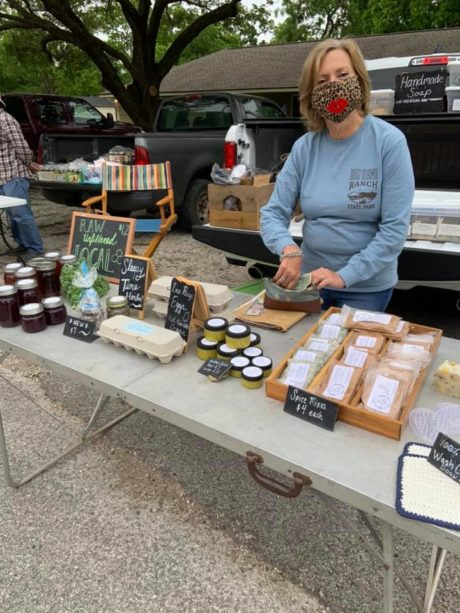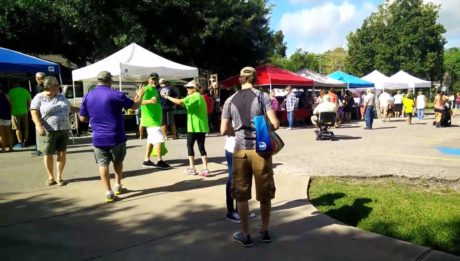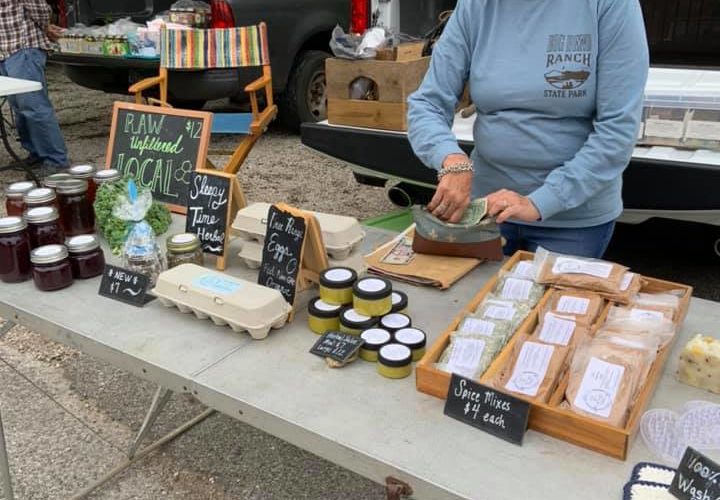
The Peach Street Farmer’s Market started with an idea from members of Holy Comforter Episcopal Church in Angleton to provide an opportunity for small businesses to get their start and to connect their community with healthy, locally-grown food. Even as organizers spent two years preparing to launch the market in August of 2017, they had no idea the level of impact they would have on their community.
From the very beginning, leaders hoped to open with seven to 10 vendors and 50 visitors each week. Instead, the market opened with 13 vendors and 150 visitors. Now, three years after their initial opening, there have been 115 vendors and approximately 400 visitors on a normal Saturday. Many of their vendors have gone on to start their own storefronts because of the farmers market.

While the mission of Peach Street Farmers Market started as a way to serve as an incubator for small businesses, it has also grown to be a real community hub incorporating many different elements outside of food vending. The market has become a place for nonprofits and religious groups to interact with the community, raise funds, and share information.
Recently, one group has made the market a place to drop-off donations for items like paper goods which are not covered by WIC – the Special Supplemental Nutrition Program for Women, Infants, and Children.
Since the beginning, the market has also been a place for local performers and entertainers to perform and share their music or talents. Recently, the market hosted the first “Peach Street Night Jams,” a nighttime singer-songwriter festival featuring local artists.
Ellen Eby, manager of Peach Street Farmer’s Market, credits the group’s ability to grow and change by their willingness to listen to and be led by the community.
“It is diverse, it is organic, it takes on a life of its own as defined by the needs of the community at any given moment,” said Eby.
Part of this strategy to be organic and open to change came from their participation in EHF’s Holy Currencies Sustainable Ministry Incubation Program. Holy Currencies is a program that partners with Kaleidoscope Institute to help congregations develop a ministry plan and build sustainable initiatives.
As the reality of COVID-19 became apparent in mid-March, Peach Street Market quickly decided to shut down to preserve the health of their community. However, in the week after the shutdown, vendors said that if they stayed closed they would simply have to waste food, which felt wrong during a time when people would be in need of food. In addition, 50% of the vendors rely on the market as their primary source of income. So, Peach Street leaders and vendors worked together to be able to open safely as a one-way drive-through market with all the appropriate safety measures in place.
“Just watching the way the drive-through market evolved was such a testimony to the trust and the loyalty of the relationships that have already been established,” said Eby. “It was just amazing. The market just organically took on a new form. It’s a true testimony to the relationships people have built and the trust they have to reach out and continue taking care of one another in an extraordinary, unprecedented time. That they have cultivated enough of a relationship of loyalty and trust to do that is just really goosebumpy and amazing.”
Holy Comforter in Angleton has seen its relationship with the community change because of the farmers market. Although the market is not an evangelizing effort, their presence at the market connects them with their community. Eby said that the market gives their church a chance to get to know their neighbors.
“We are not proselytizing but we are living out meeting and loving your neighbor as yourself, literally and because we get to meet our neighbors and we have conversations, we are establishing relationships, we get to know what their needs are and we are able to provide for their needs,” she said.
The community at the market is diverse: young children and the elderly, people in wheelchairs and with walkers, and people who otherwise never would have had a space to ask questions become connected with one another and Holy Comforter. This changes the perception that the community has of the church but also how parishioners feel connected to their own church as well.
“People see that a mission of their church is having an impact on their community,” Eby said. “So it becomes a source of pride.”
